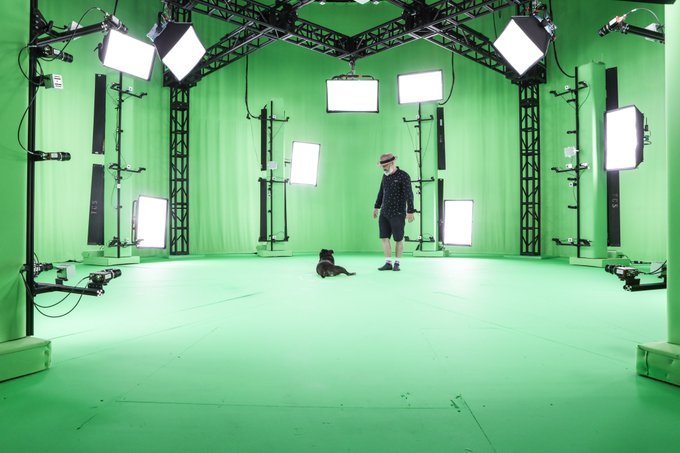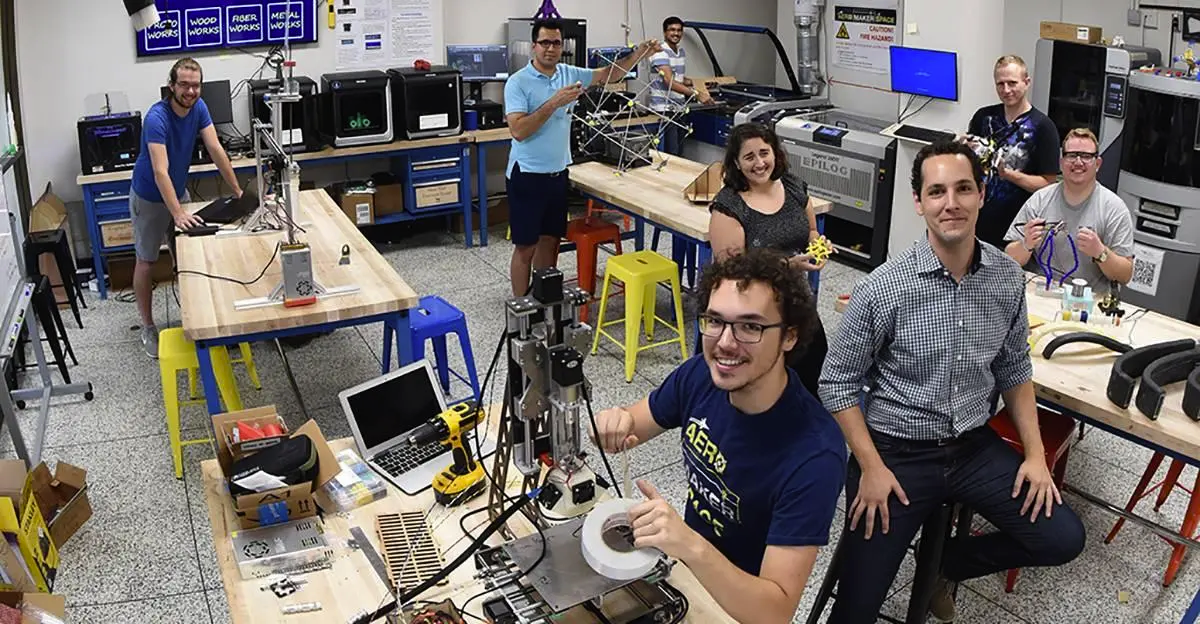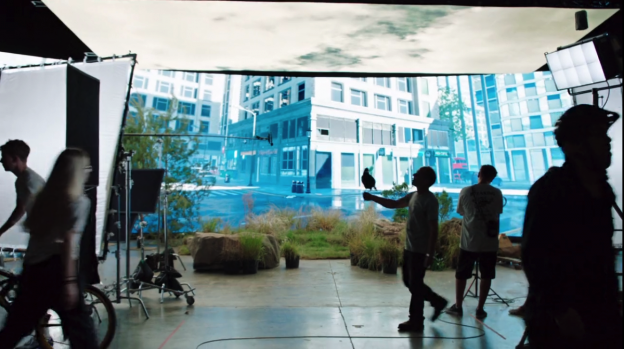
Human Augmentation Laboratory
We're thrilled to announce that the HAL has received a $1.4M grant from the NSW Tech Central Research and Innovation Infrastructure Fund to support the development of the lab!
The Tech Central Human Augmentation Laboratory (HAL) is a self-supporting, industry-led, open lab facility for the rapid research translation of the coming wave of technologies that augment human capability: Augmented Reality, Robotics and AI. The infrastructure provided by HAL is designed to provide openly-available facilities needed by the Tech Central ecosystem to accelerate deeptech startups’, university researchers’, and industry’s spinning up of scientific experimentation, clinical trials & co-design of high-impact technologies and products aimed at serving the medtech, disability, space, and general consumer markets. This is a world-class resource built by and for the Tech Central community to keep Australia relevant and internationally competitive.
HAL’s approach takes an Aussie slant on ‘what works best’ to get maximum value, utilisation, and benefit out of the facility. As such, the HAL is Industry-Led/University-Adjacent and open for the Tech Central community to utilise - with commitments from all involved to have some ‘skin in the game’. Access is either free or subsidised, and run by the community it serves; made possible by the financial support and involvement of several consortium partners who will bring cutting-edge research translation and commercialization projects to the facility.
Facilities:
Human Augmentation Laboratory: a 120m2 “Holodeck” environment-simulation infrastructure incorporating ground truth scientific/clinical-grade sensor systems and data capture for humans and robots (see images below for examples of such facilities)
140-seat auditorium event space for technology demonstrations, presentations and meetings.
Human performance sensory and state assessment lab for trial participants (visual, auditory, touch, cognition)
The HAL Consortium:
ARIA Research: The lead partner of this Consortium will lead the building and management of HAL and use the facility to conduct clinical trials and product development in collaboration with the NDIS. The first of ARIA Research’s products to utilise HAL for its development is ARIA -“Augmented Reality in Audio” - a non-invasive bionic vision system that is the world’s first commercially-scalable solution to vision disability. ARIA is Australia’s first home-grown AR glass hardware device, designed and manufactured here in Sydney. The HAL allows large-scale measurement of device and human performance in instrumented real-world scenarios such as mock streetscapes, shops, public transport, workplaces and home environments.
UTS: CIBIC (Computational Intelligence and Brain Computer Interface Centre) will use the facility to conduct research translation of AR and VR systems that augment human perception and measure cognitive workload. This is of critical importance to the design of robotics and AR systems that augment human perception in disability, consumer and industrial contexts while avoiding causing sensory conflict or overload for the human user..
USyd: CARLAb, (Computational Audio Research Laboratory) and ACFR (Australian Centre for Field Robotics). The facility will be used to conduct experiments and trial the role of robotics and machine vision systems in both human augmentation and human-robot interactions; in particular, validation and demonstration of high-performance realtime edge-based machine vision novel sensor design, and applications including MEMS Lidar, GHz low-power high-resolution radar in a range of use cases including disability, consumer, and industrial. SaveSight Institute plans to use the Human Performance Lab and the main HAL Lab to investigate improved models of care and applications for augmented sensory perception for people living with low vision.
World Access for the Blind Australia: WAFTB.AU will be locating its national headquarters in the facility and use the unique and multifaceted spaces in the building as an all-weather facility for training vision-impaired people in echolocation, mobility skills and self-determination. The facility provides the opportunity to create varying acoustic and lighting situations as well as simulated home, office and public environments and is located in the centre of Sydney, with easy access to pedestrian zones, public transport, shopping centres, streetscapes, and parks for a broad range of real-world training situations.
The Human Augmentation Laboratory at Tech Central, as an open-access facility, will welcome the other members of the Tech Central community - start-ups, SME’s, university researchers, students, and corporates - to use the HAL facilities on a free or subsidised basis. HAL’s business model is designed to have HAL be self-supporting within two years, with ongoing growth, expansion and upgrading of the facilities built into the financial model.
For inquiries, please contact us at HALTechCentral@ariaresearch.com.au
ARIA Research receives $1.4M in grant funding to build Human Augmentation Laboratory in Sydney
Sydney, Australia - ARIA Research, an AI Bionics company, announced today that it has received a $1.4 million grant from the New South Wales Tech Central Research and Innovation Infrastructure Fund to support the development of the Human Augmentation Laboratory (HAL) in Sydney's Tech Central district.
The HAL will be an industry-led, open-lab facility that aims to rapidly research and translate the latest technologies that augment human capability such as Augmented Reality, Robotics, and Artificial Intelligence. It will provide the necessary infrastructure for deep-tech startups and university researchers in Tech Central to conduct clinical trials, user testing, and co-design high-impact technologies for the medtech, disability, space, and general consumer markets.
The facility will include a 120 m2 main lab space, a 140-seat auditorium, and a 240 m2 human capability assessment lab. Access to the lab will be either free or subsidised for students, researchers, and startups and available for use by other industry and research organisations in Sydney.
"HAL is an open toolbox to help speed early-stage deep-tech innovators in gathering the proof points needed to support commercialization of life-changing, high-impact technologies and products with the potential for global export," said lab project leader Robert Yearsley.
ARIA Research will use the lab to conduct user and clinical trials of its AR Glass non-invasive bionic vision system in collaboration with the National Disability Insurance Scheme (NDIS) and the blind community. The project aims to demonstrate, under clinical conditions, how the AIRA device can provide a blind user with accurate spatial perception via sound. ARIA aims to provide life-changing sensory capability to the world's 338 million blind and low-vision people.
A pilot clinical trial is scheduled for the first half of 2024 with the support of MTPConnect's CTCM program. The capabilities of the HAL allow for the simulation of complex environments such as kitchens, road crossings, and shops to better understand the impact of the technology across a broad range of everyday scenarios. The lab is fully instrumented to not only provide sophisticated simulations but ground-truth measurement of human biophysical state, and physical interaction. It is expected that the lab will dramatically speed up research translation where empirical data is needed around user state and interaction with the physical environment.
The grant was announced by Minister for Science, Innovation, and Technology Alister Henskens, who said, “Tech Central’s status as a nation-leading centre of innovation and development will be enhanced by these projects, harnessing the power of local expertise to bring significant physical and digital infrastructure across its target industries and research areas”.











